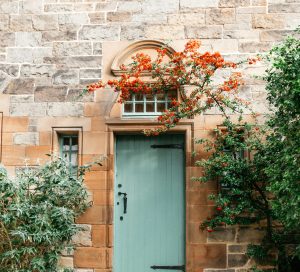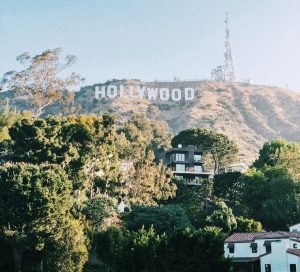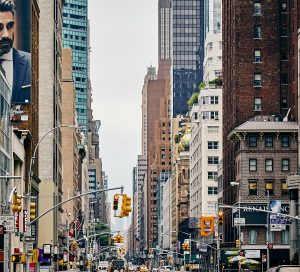Savannah, Georgia is steeped in Southern charm and bittersweet Black history. As much as the city is known for its bucolic beauty accented by lush oak trees dripping with Spanish moss, it was also the site of the largest slave auction in U.S. history.
Fortunately, Savannah doesn’t hide from its painful past, and both the hardships and the perseverance of African Americans from the region are highlighted in the city’s cultural tapestry.
Want to explore more of Savannah’s Black history and culture? Let us be your guide.

Savannah, Georgia is steeped in deep history and culture. (Photo Credit: Benjamin Disinger)

Oak trees dripping with Spanish moss are characteristic of Savannah. (Photo Credit: Sunira Moses)
Slavery’s Roots in Savannah
Recognized by historians as the largest sale of enslaved people in the United States, over a two-day period in March 1859 more than 400 men, women, and children were sold into slavery at a Savannah racetrack. This event has been called “the weeping time” because of the downpour that occurred that day, as if the heavens opened up to mourn the sorrowful scene. A historical marker commemorates the site on the city’s west side; however, the Weeping Time Coalition is fighting to preserve the plot of land from development.
On the city’s waterfront promenade, there’s an African American Family Monument on River Street that commemorates the enslaved Africans who were brought into Savannah’s harbor. To connect past and present, the bronze statue was created by local artist Dorothy Spradley and depicts a contemporary Black family embracing and standing on broken chains. A poem by Maya Angelou is inscribed at the granite base and tells the hard truth about slavery.

The African American Monument on River Street. (Photo Credit: Flickr)
The Path to Freedom
Take a guided tour of the First African Baptist Church, constituted in 1777 and the oldest Black church in North America. When I visited the historic church on Franklin Square, I was humbled by its significance as I touched the wooden pews made by enslaved Africans and descended into the basement where holes are carved the floorboards in the shape of an African prayer symbol. Those symbols denoted the church as a point on the Underground Railroad, and I felt privileged to stand where some of my ancestors were given safe harbor.

History plays an important role in Savannah’s culture and identity. (Photo Credit: Mick Haupt)
Gullah-Geechee Culture
Located on the banks of the famed Moon River in a former crab factory, learn about the region’s Gullah-Geechee roots at the Pin Point Heritage Museum. The Gullah culture is derived from people of West African ancestry who were brought to coastal areas of Georgia and South Carolina to farm rice. In Savannah, this heritage is preserved in the Pin Point community. Founded in 1896 by freedmen after the Civil War, Gullah-Geechee communities like Pin Point still celebrate their ancestors through their religion, food, and distinct Creole language.
3 Black-Owned Eateries to Support Now
Sunday supper is served daily at Sisters of the New South, where the menu includes Southern staples like fried fish and chicken, smothered pork chops, yams, okra, baked macaroni, and cheese and red velvet cake.

Absorb the beauty of Savannah while exploring for uniquely delicious cuisines. (Photo Credit: Jessica Furtney)
Set up in a 1938 Greyhound Bus Terminal, The Grey is known for low country cuisine with a creative twist (crab beignets and quiche with summer squash and callaloo) made with seasonal and locally sourced ingredients.
Pick up sweet treats – we’re taking chocolate chip cookies, brownies, pastries, and buttermilk biscuits with jam – like Grandma used to make at Back in the Day Bakery.
Check out the rest of our Black History & Culture blog series by following the tag below.













